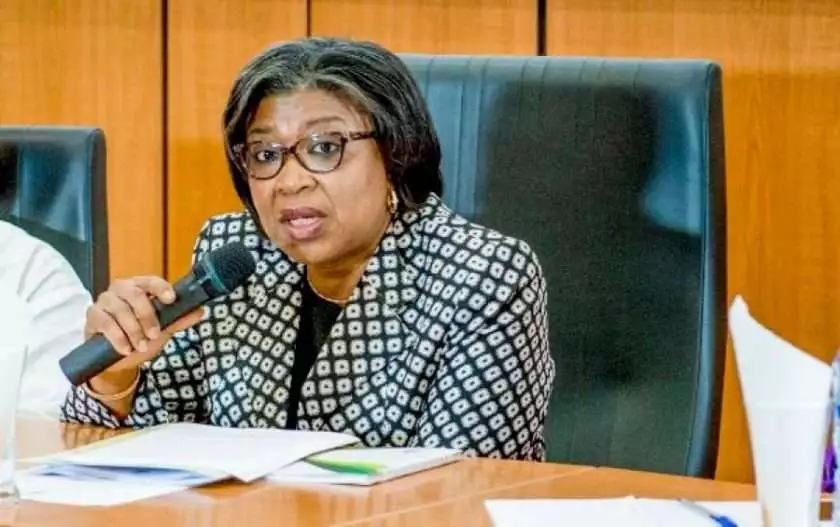The total debt stock of the federal and 36 state governments stood at N41.6 billion, the Debt Management Office, DMO has said.
The Office made the revelation barely one week after the minister of Finance, Zainab Ahmed warned that the country’s debt could rise to over N50 trillion next year as the federal government is planning to borrow more to finance critical infrastructure in the country
Speaking on Thursday in Abuja the Director General of DMO, Patience Oniha said the debt owed by the federal and state government as of March 2022 stood at N41.60 trillion.
The DMO boss disclosed this during her appearance at the ongoing engagement on the 2023 – 2025 Medium Term Expenditure Framework (MTEF) and Fiscal Policy Paper held by the House of Representatives Committee on Finance yesterday.
She blamed the shortfall in revenues for the rising debt, adding that 85 per cent of the debt is owed by the federal government.
She attributes the rising debt to government overhead and personal costs, noting that until these issues are addressed there’s no end in sight to borrowing.
According to her, “the debt stock of Nigeria and that includes the federal, state governments and the Federal Capital Territory was N32.92 trillion. By December 2021, it was N39.556 trillion.
“As at March of this year, we published quarterly, it was N41.6 trillion. On the average, the federal government is owing about 85 percent of the total debt.
“We have been running deficit budget for many years and each time you approve a budget with a deficit, by the time we raise money, because when you approve it is giving us a mandate, authority to borrow, it will reflect in the debt stock, so the debt stock will increase.
“Also note that states are also borrowing. So we add their own. They also have laws governing their borrowings and as debt stock increases so does debt service.
“Until the issues of personnel, overhead and capital expenditure are properly addressed in the budget, borrowing would not stop.”
Oniha said the nation’s debt is still manageable compared with other countries with a higher debt-to-Gross Domestic Product, GDP ratio.
She said Speaking further, she said Nigeria’s debt-to-GDP “is low but for debt service-to-revenue ratio, we are very high. So, if you look at tax-to-GDP ratio of these other countries, they are in multiples of Nigeria.”
The DMO DG however warned against a situation where debt servicing will be so high that it will leave no funds for capital projects, adding that governments at all level should find ways to expand the revenue net.
“Sustainable means you can service your debt without difficulty, without it consuming all your revenues because you have very little for other projects. You must look at revenues very closely and I think the discussions you have had with the Customs is one part of it.
“There are many other revenue generating agencies. So, we must increasingly begin to look out our revenue for funding our activities as opposed to deficit.
“We talked about N11 trillion deficit and borrowing for 2023, how much is the revenue there? When we looked at the first tranche that was N10 trillion for full year of subsidy and N9 trillion for subsidy next year and the size of the borrowing was 62 per cent of the budget. That’s high.
“The responsibilities, I think, are on both sides. Query the various expenditure lines and see what it is we can handle. So, if the deficit is lower, the borrowing will be lower and that’s how to grow on a slower pace,” Oniha said.
Discover more from The Source
Subscribe to get the latest posts sent to your email.








